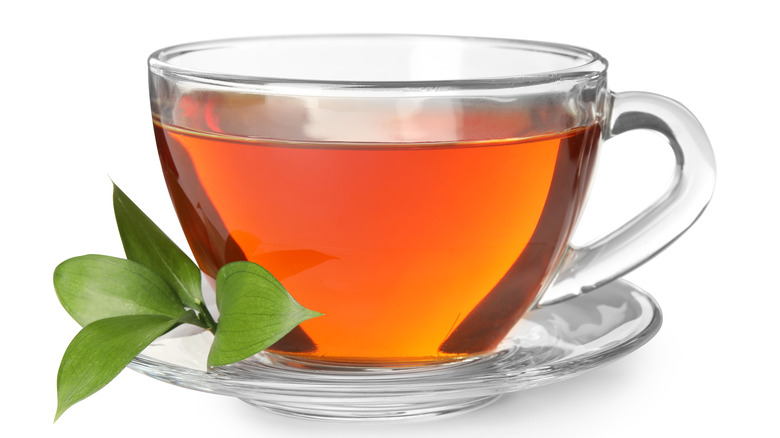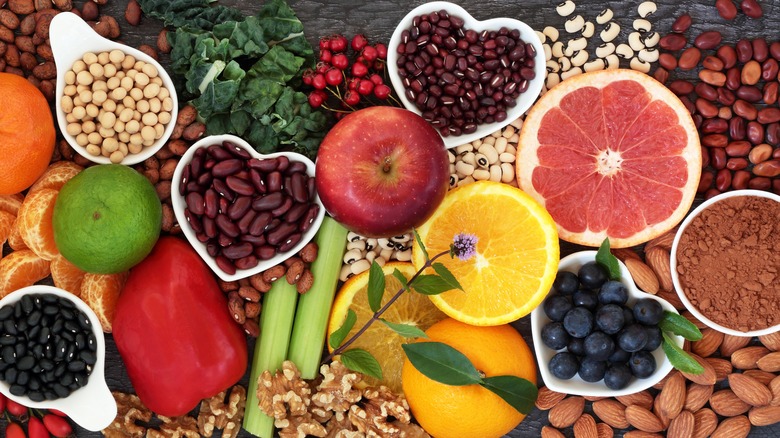Can A Daily Cup Of Tea Boost Your Heart Health?
Heart disease is the leading cause of death in the United States, and someone has a heart attack every 40 seconds, according to the Centers for Disease Control and Prevention. Although avoiding smoking, drinking in moderation, and exercising help decrease your risk of heart disease, researchers are finding ways that diet can improve your heart health.
A 2022 study in Arteriosclerosis, Thrombosis, and Vascular Biology looked specifically at the role of flavonoids on vascular disease. The study focused on the calcification of the abdominal aorta, which is the largest artery in the body that takes blood from the heart through the abdomen and the rest of the body (via NHS Inform). If someone has calcification around this artery, it increases the risk of a heart attack, stroke, and late-life dementia (per a press release about the study).
The study asked 881 women between the ages of 78 to 82 about their typical food intake. To measure abdominal aortic calcification (AAC), the researchers took images of the women's spines. After adjusting for demographics and lifestyles, the women who took in the most flavonoids were less likely to have an extensive build-up in the abdominal aorta. When the researchers looked a little deeper, they found a common food that reduced the likelihood of AAC – black tea. These women drank two to six cups of black tea per day.
Black tea is among several sources of flavonoids that might help heart health
For those who don't like black tea, there's no worry. The study found that those who had a higher flavonoid intake through other foods and drinks also had a reduced likelihood of AAC. If you think that fruit juice, red wine, and chocolate might be fine substitutes, those choices didn't benefit as much as other foods (via a press release about the study).
According to Healthline, six kinds of flavonoids can improve your health. Flavanols are found in foods including onions, kale, grapes, red wine, tea, peaches, and broccoli. White tea, green tea, apples, blueberries, and chocolate all have flavan-3-ols. The flavones in parsley, chamomile, peppermint, and celery all have anti-inflammatory properties. Lemons, oranges, and grapefruit are sources of flavanones that also have anti-inflammatory benefits, but they can also help with cholesterol and weight loss. The isoflavones in soy and fava beans help balance hormones, and anthocyanins can be found in cranberries, blueberries, and blackberries.
Adding flavonoids to your plate might sound overwhelming, but the American Heart Association suggests adding small amounts each day. This might mean eating a piece of fruit between meals or adding a vegetable to your plate for dinner. If your favorite fruits or vegetables aren't in season, frozen is fine. You can also juice your fruits and vegetables for the flavonoids, even though you'll miss out on the fiber.


